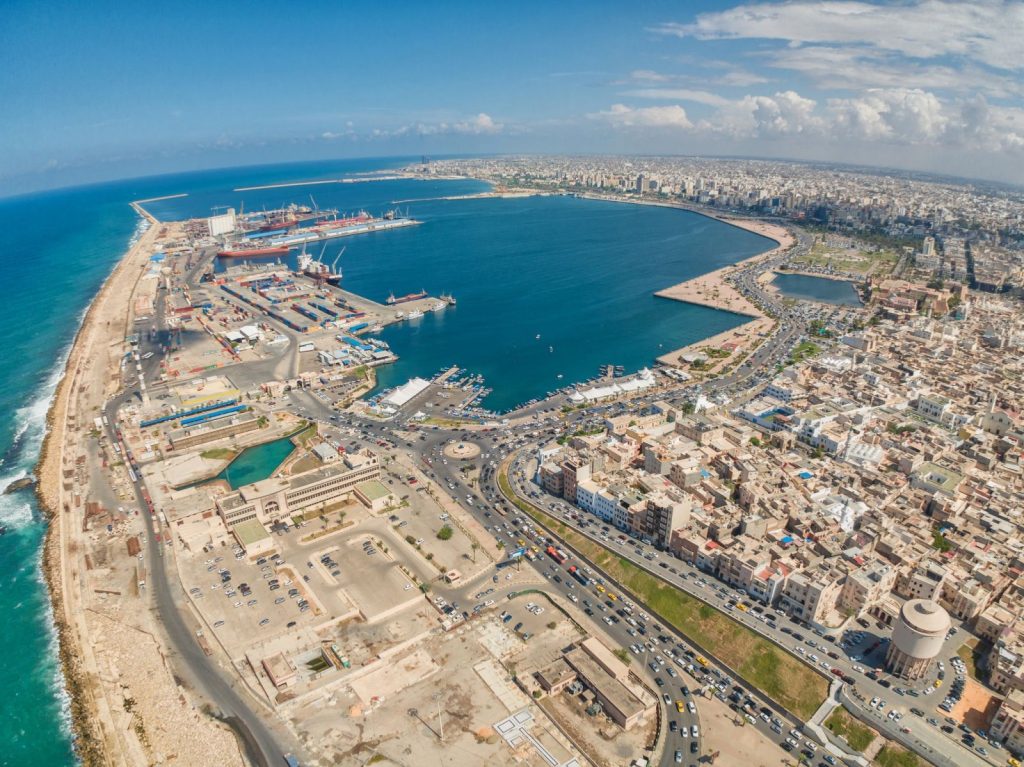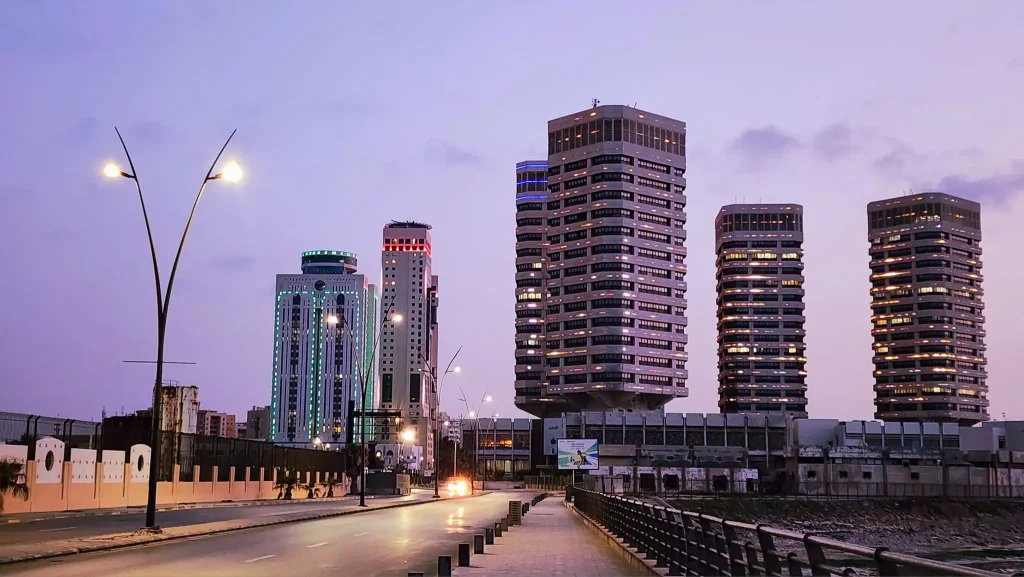In the heart of North Africa, Libya plays a pivotal role in the global energy landscape, and at the centre of this is the National Oil Corporation (NOC). As the country’s primary oil and gas entity, NOC Libya is crucial to both the national economy and the broader energy market. With vast reserves and a strategic location, Libya’s potential for influencing global oil dynamics cannot be overstated.
We often hear about the challenges facing Libya, from political instability to infrastructure hurdles. Yet, the resilience and adaptability of NOC Libya stand out as testaments to its importance. In recent years, the corporation has navigated a complex environment, striving to maintain production levels and attract international investment. Our exploration of NOC Libya offers insights into how this vital institution manages to balance local challenges with global expectations, shaping the future of energy in the region.
Table of Contents

Overview Of NOC Libya
The National Oil Corporation (NOC) operates as Libya’s primary vehicle for oil production and management. Established in 1970, it’s entrusted with the stewardship of the country’s hydrocarbon resources. The NOC actively oversees various subsidiaries and joint ventures ensuring efficient extraction, refining, and distribution of oil and gas.
Libya’s extensive oil reserves, estimated at 48 billion barrels, place the country among the top ten globally. NOC’s role is crucial in managing these vast resources, significantly impacting both national and international energy markets. Despite challenges like political instability and operational disruptions, the NOC maintains its resilience. By leveraging advanced technology and strategic partnerships, it navigates complex local and international scenarios.
Regarding international collaborations, the NOC collaborates with top global energy companies. This network enables efficiency and innovation in Libyan oil production. Meanwhile, local expertise is cultivated through partnerships with entities like Qabas, which provide essential consulting and strategic advice. These insights assist in navigating the dynamic landscape of energy production, ensuring NOC adapts to global demands while aligning with national priorities.
Historical Background of Libya’s NOC
The significance of NOC Libya in the global energy sector traces back to its strategic formation and evolution, serving as a backbone for Libya’s oil-rich economy.
Formation And Development
NOC Libya emerged in 1970 to centralise the management and development of the nation’s vast hydrocarbon resources. The establishment aimed to streamline oil production and maximise revenue. Its early years focused on building a robust organisational framework and implementing rigorous exploration strategies. The NOC steadily expanded its capabilities by investing in infrastructure and technology, enhancing Libya’s position in the global energy market.
Key Milestones
Over the decades, NOC Libya achieved notable milestones shaping its evolution. In the 1980s, despite challenges from international sanctions and political pressures, NOC managed to sustain oil production and maintain crucial alliances. The early 2000s marked a reinvigoration of Libya’s oil sector, with NOC at the forefront, leveraging technological advancements and expertise to boost production capacity. In recent years, amid Libya’s political instability, NOC demonstrated resilience by safeguarding essential assets and reengaging with global libyan energy companies to ensure continued energy supply.
The historical growth and adaptability of NOC Libya reflect an ability to navigate complex scenarios, paralleling our approach as a consulting firm in strategising and mitigating risks for sustained success.

Role of Libyan NOC In The National Economy
The NOC serves as a backbone of the Libyan economy, heavily influencing national revenue streams and job creation. Its efficient management and strategic operations bolster economic stability amidst regional challenges.
Contributions to National Revenue
NOC’s oil and gas exports constitute a significant portion of Libya’s GDP. In 2022, NOC reported revenues exceeding $22 billion, demonstrating its pivotal role in national income (source: Libya’s Ministry of Finance). Its operations provide critical funding for public services and infrastructure projects. Through joint ventures, NOC enhances technological and management capabilities, enabling sustained economic growth. Financial stability largely hinges on the corporation’s revenue generated from global energy markets.
Employment Opportunities
NOC directly employs thousands of Libyans and indirectly supports many more through affiliated sectors. It provides skilled training initiatives, developing local expertise in oilfield operations. Collaborative programmes with international firms enhance workforce capabilities. Vocational training and apprenticeships diversify employment opportunities across the oil and gas industry. By fostering talent, NOC contributes to a robust job market and advances socioeconomic development.
While NOC remains central to Libya’s economic framework, organisations seeking operational and strategic excellence find valuable partnerships. Qabas, a consulting firm in Tripoli, excels in navigating local complexities, offering services tailored to evolving market needs. This firm supports clients aiming for optimal efficiency and competitive advantage. Although our focus lies in understanding NOC’s macroeconomic impact, companies like Qabas provide essential insights and strategies within this dynamic sector.

Challenges Faced By NOC Libya
NOC Libya encounters numerous challenges as it manages the nation’s vast oil resources. These challenges primarily stem from political dynamics and infrastructure constraints.
Political Instability
Political instability often disrupts NOC’s operations. Frequent changes in government and ongoing conflicts fragment governance, affecting the corporation’s ability to maintain operational consistency. Inconsistent regulatory environments and security threats can delay projects and deter foreign investment. Despite these difficulties, NOC strives to sustain production through adaptive strategies and collaborations. Our experience shows the value of consulting firms, like Qabas, in guiding through complex local frameworks, helping NOC mitigate risks associated with regional upheavals.
Infrastructure Issues
Infrastructure presents another significant challenge for NOC Libya. Aging facilities, pipelines, and storage units require substantial maintenance and upgrades to meet modern efficiency standards. Outdated technology hampers production capacities and limits the corporation’s ability to enhance output. Improving logistical networks and refineries is essential for sustaining operations and meeting international market demands. Strategic partnerships and technical support from corporations and consultancy firms, such as ours at Qabas, offer pathways to overcome these infrastructural barriers, optimising operations within the sector.
Libyan NOC Recent Developments
NOC Libya continues to adapt and transform in the dynamic global energy landscape. Recent developments focus on expanding operational capacity and forging key partnerships.
New Projects And Initiatives
Our focus on increasing Libya’s oil production capacity has led to several promising projects. One notable venture involves the enhancement of existing fields, applying advanced technologies to maximise output and reduce environmental impact. A recent initiative strives to modernise infrastructure by upgrading pipelines and refining facilities, ensuring compliance with international standards.
Investment in renewable energy projects reflects NOC’s commitment to diversifying Libya’s energy profile. Plans include solar and wind energy ventures, aimed at complementing traditional hydrocarbons, and addressing environmental concerns. These advancements underscore NOC’s strategic approach to adapting to energy transitions.
Strategic Partnerships
Strategic alliances with leading global energy firms reinforce NOC’s efforts to maintain high operational standards. Collaborations enable access to cutting-edge technology and expertise, essential for optimising extraction and processing efficiency.
Qabas plays a vital role in this process, offering specialised insights into risk management and strategic planning. Our collaboration provides NOC with the necessary tools to navigate the political and economic uncertainties that challenge the industry. Through partnership, we help align their operations with best practices, ensuring resilience and sustained productivity.
Existing alliances further strengthen NOC’s capacity to attract foreign investments, highlighting Libya as a significant player in the global energy market. These partnerships mark an essential step in sustaining growth and development within the region.

Impact On The Global Oil Market
NOC Libya plays a crucial role in shaping the global oil landscape due to its substantial oil reserves. Libya’s strategic location and significant production contribute to energy dynamics worldwide.
Export Strategies
NOC’s export strategies focus on maximising revenue through diversified trading partnerships and efficient logistics. Libya, as an OPEC member, aligns its production with global supply strategies. By leveraging partnerships with key international oil firms, NOC enhances distribution networks, ensuring timely and efficient oil exports. This approach stabilises oil flow to global markets and supports Libya’s economic standing amidst regional challenges. Our collaboration with strategic partners improves execution, positioning NOC as a reliable exporter.
Influence On Oil Prices
NOC’s production levels and export volumes significantly impact oil prices. Changes in Libya’s output often affect global supply-demand balance, influencing market prices. NOC aims to maintain stable production despite geopolitical challenges, mitigating price volatility. By adopting advanced technologies and improving operational efficiency, NOC helps stabilise global oil markets. Insights from consulting firms in Libya, like Qabas, assist NOC in navigating market uncertainties, reinforcing its ability to influence oil pricing dynamics effectively. Their expertise ensures NOC adjusts to market demands, supporting both local stability and global energy needs.
Conclusion
NOC Libya stands as a pivotal entity in both the national and global energy sectors. Its strategic management of vast oil reserves not only underpins Libya’s economy but also influences global oil markets. Despite challenges such as political instability and aging infrastructure, NOC’s resilience and adaptability are commendable. By embracing technological advancements and forming strategic partnerships, it continues to optimise operations and sustain production. As NOC invests in renewable energy, it positions itself as a forward-thinking leader in the energy transition. Our understanding of NOC’s role highlights its significance in shaping Libya’s economic future and contributing to global energy dynamics.
Frequently Asked Questions
What is the NOC of Libya?
The NOC of Libya is the state-owned company responsible for the production and management of Libya’s oil and gas resources. Established in 1970, it manages various subsidiaries and joint ventures to ensure efficient extraction, refining, and distribution of hydrocarbons within the country and internationally. NOC plays a crucial role in Libya’s economy and energy sector.
Why is the NOC important to Libya’s economy?
NOC is a pillar of Libya’s economy as oil and gas exports account for a substantial share of the country’s GDP. In 2022, it generated revenues over $22 billion, crucial for funding public services and infrastructure. Additionally, it provides employment to thousands of Libyans and supports many more through associated sectors, contributing to economic stability and growth.
How does NOC contribute to the global energy market?
NOC’s management of Libya’s vast oil reserves, estimated at 48 billion barrels, impacts global energy dynamics. As an OPEC member, NOC aligns its production with global supply strategies, influencing oil prices and stabilising worldwide markets. Its export strategies involve diversified trading partnerships and efficient logistics to maximise revenue and ensure steady energy flow to global markets.
What challenges does NOC face?
NOC faces numerous challenges, including political instability and infrastructure issues. Political changes and conflicts disrupt operations and project timelines. Additionally, aging facilities and outdated technology pose significant challenges to enhancing production capabilities. Despite these hurdles, NOC collaborates with international firms to improve efficiency and navigate these complex scenarios.
How is NOC addressing environmental and technological advancements?
NOC is investing in renewable energy projects, including solar and wind, to diversify Libya’s energy profile and reduce environmental impact. It also focuses on modernising infrastructure to meet international standards and uses advanced technologies to enhance output and efficiency. These initiatives reflect NOC’s commitment to sustainability and technological growth.
What are the recent developments in NOC’s operations?
NOC continues to adapt by expanding operational capacity and pursuing key partnerships. It undertakes projects to modernise existing oil fields with advanced technologies, aiming to maximise production while reducing environmental impact. NOC also explores renewable energy ventures to address global energy transition trends and contribute to its sustainable development goals.



